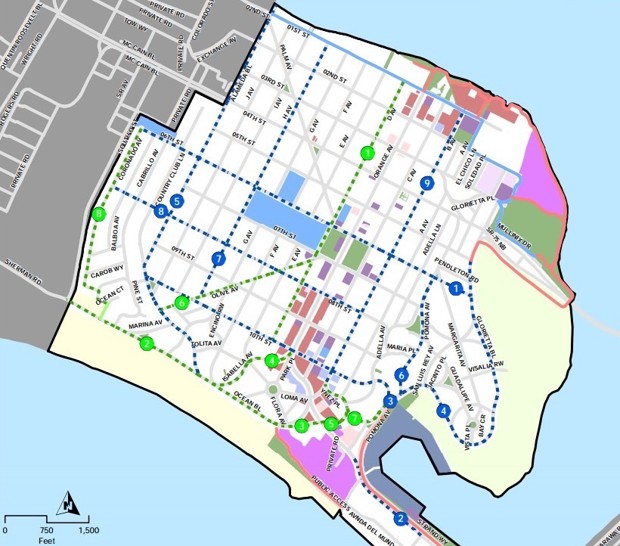Residents of Coronado, California, marched out a series of absurd anti-bike arguments that somehow won the day.

Bicycle advocates have learned how to respond to all sorts of opposition to bike lanes: they’re bad for business (actually, they’re great for it), they slow down traffic (actually, they can decrease travel times), they take up space for cars (actually, they make roads safer for all). But the type of arguments they heard during a public meeting in Coronado, California, earlier this month might have left them speechless.
At issue in the San Diego County resort city was a master plan to add 12 more miles of bike paths. Historically, Coronado has been a bike-friendly place; the League of American Bicyclists has recognised the city’s commitment to cyclists, and the bike commute share is a solid 4.5 percent—no match for the 70 percent of people who drive to work, but still way above the county and national averages. Adopting the measure should have been an oceanside breeze.

Instead the air got pretty salty. At the meeting, resident upon resident objected to the bike lanes on emotional grounds that had little to do with the safety evidence presented by experts, and everything to do with an inability to conceive of an urban mobility system that opened to the road to non-drivers. Claire Trageser of local KPBS reports a taste of the befuddling comments brought before the council:
[infobox]
“You are covering Coronado with paint stripe pollution,” said resident Gerry Lounsbury.
From our partners:
“The graffiti on the streets does not help our property values,” declared Aileen Oya.
The lanes “bring to mind a visual cacophony that if you look there long enough it will induce a dizzying type of vertigo,” said Carolyn Rogerson.
Gerry MacCartee asked if the community couldn’t think of a better option than “these black streets with these brilliant white lines everywhere because believe me, it takes away from your home, from your outlook on life.”
And Darby Monger crafted an analogy to describe the addition of bike lanes to her beloved city.
“It’s very similar to personally taking all three of my daughters to a tattoo parlor and having them completely body tattooed,” she said.
[/infobox]
Against all that is holy about logic and reasoning, those arguments won the day. In the end, the council voted “to suspend all proposed bicycle striping and pavement markings and directed staff to place on a future agenda the Bicycle Master Plan as a high priority.” The Coronado mayor endorsed the decision, telling KPBS the public should get what it wants “unless what they’re asking for is illegal or unethical.”
That’s an alarmingly weak case from an elected official entrusted with the health and well-being of his constituents. If a decision that undermines public safety isn’t unethical, what is? Consider whether the mayor would accept a council decision to suspend traffic lights in the city, because the way they swayed in the San Diego Bay breeze induced a dizzying type of vertigo.
This feature originally appeared in CityLab.

















